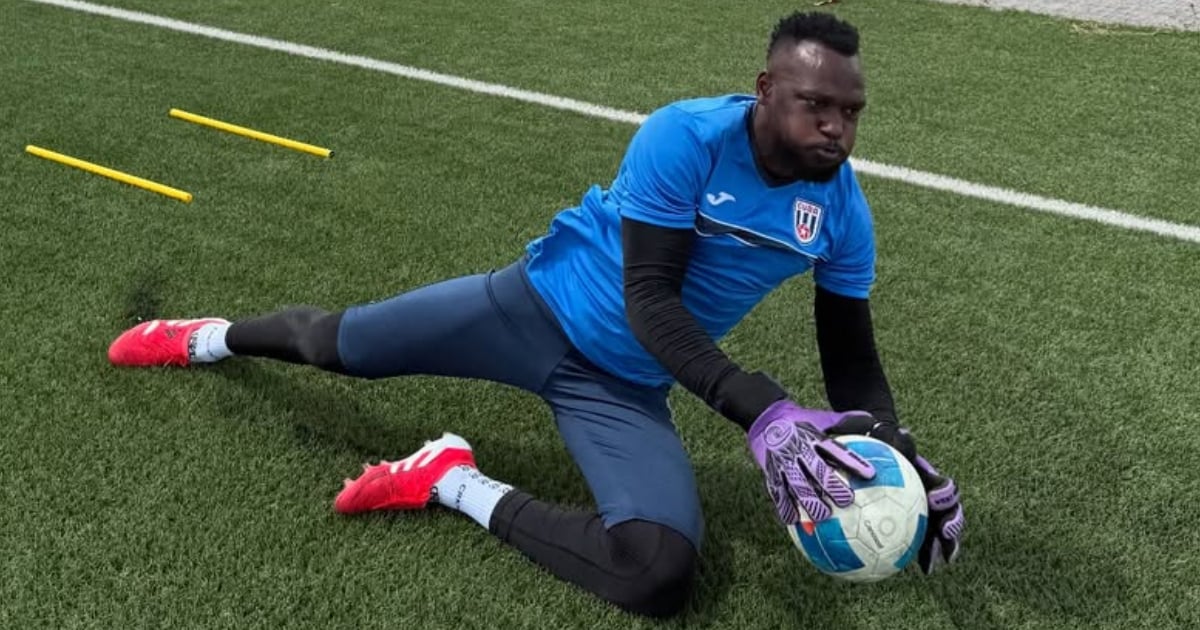Raiko Arozarena, the goalkeeper for Cuba's national soccer team, has declined to join the squad for a World Cup 2026 qualifier. The Cuban Football Association (AFC) officially announced his decision through an official statement released by state media. This news came just hours before the team was set to travel from Antigua and Barbuda to Santiago de Cuba for a match against Bermuda scheduled for Sunday, June 9, where the Cuban side aims to advance in the tournament.
Arozarena, who is the brother of Major League Baseball player Randy Arozarena, cited concerns over recent immigration policies implemented by the Trump administration as the reason behind his decision. These policies restrict entry to the United States for individuals from certain countries, including Cuba.
Preemptive Decision Despite Exemption
Even though the policy shouldn't directly affect him, as he is a legal resident in the U.S. and the regulations specify that legal or permanent residents are not subject to the harsher restrictions, Arozarena decided not to take any risks. He is worried about potential repercussions on his club career.
The AFC highlighted that this situation underscores the atmosphere of uncertainty and pressure these kinds of measures create, along with the associated media campaigns, which indirectly affect Cuban sports and athletes residing abroad.
"We understand that this is a personal decision based on individual circumstances," the Association stated in their note, while reaffirming the remaining delegation's commitment to the World Cup cause.
Trump's Travel Restrictions on Cuban Nationals
U.S. President Donald Trump recently signed a presidential proclamation imposing new travel restrictions on citizens from several countries, including Cuba, citing "national security risks" as the rationale.
"I have decided to restrict and partially limit the entry of nationals from the following seven countries: Burundi, Cuba, Laos, Sierra Leone, Togo, Turkmenistan, and Venezuela. These restrictions differentiate between immigrant and non-immigrant entries but apply to both," the official text states.
The measure completely bans entry to the United States for citizens of 12 countries, including Afghanistan, Iran, Somalia, and Yemen. Simultaneously, it imposes partial restrictions on individuals from seven nations, including Cuba, alongside Venezuela, Turkmenistan, Laos, Burundi, Sierra Leone, and Togo.
Regarding Cuba, the order states that the island "is a state sponsor of terrorism. The Cuban government does not cooperate or share enough law enforcement information with the United States. Historically, Cuba has refused to accept the return of its deportable nationals. According to the Overstay Report, Cuba had a B-1/B-2 visa overstay rate of 7.69% and an F, M, and J visa overstay rate of 18.75%."
"Therefore, the entry to the United States of Cuban citizens as immigrants and non-immigrants under the B-1, B-2, B-1/B-2, F, M, and J visa categories is suspended," the presidential order adds.
It emphasizes that "consular officers should limit the validity of any other non-immigrant visa issued to Cuban citizens to the extent permitted by law." The White House clarified that the partial restrictions allow certain exceptions for legal permanent residents in the U.S., individuals with valid visas, visa applicants in specific categories, and those whose entry is considered in the national interest.
Questions About U.S. Immigration Policies and Cuban Athletes
Why did Raiko Arozarena withdraw from the Cuba national team?
Raiko Arozarena withdrew due to concerns about new U.S. immigration policies, despite being a legal resident in the United States, as he feared potential impacts on his club career.
What are the new U.S. travel restrictions affecting Cuba?
The Trump administration's new travel restrictions limit the entry of Cuban nationals to the United States, citing national security risks and Cuba's status as a state sponsor of terrorism.
How do these restrictions impact Cuban athletes?
These restrictions create an atmosphere of uncertainty, affecting Cuban athletes who reside abroad, as they may face difficulties traveling to and from the United States.
